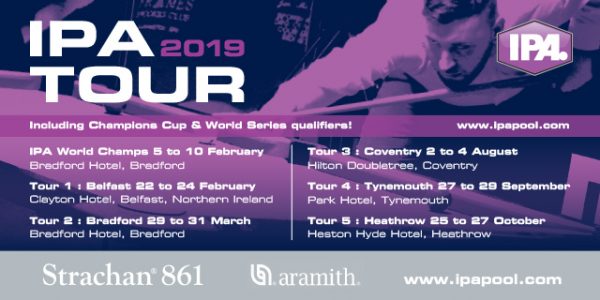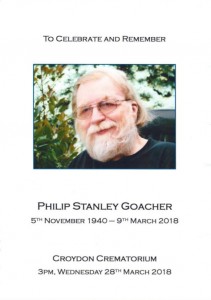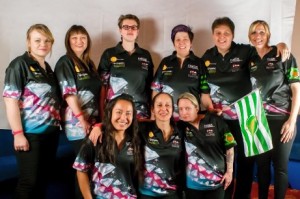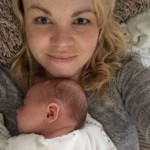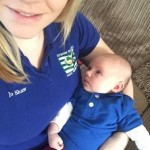At the end of May 2019 I am leaving Dyalog, so it seems like a good time to reflect on my time here and what I’ve learned from APL and the APL community.
When I joined Dyalog in 2010 I knew nothing about APL, so there was a really steep learning curve as I got to grips with both the language and its implementation. I was using some of my previous experience with compilers to improve the performance of the implementation, and thinking about ways to compile APL. This is a tough problem, and one that many people have worked on over the years (see for example Timothy Budd’s 1988 book An APL Compiler). My own ideas have shifted as I’ve gained more experience with APL and the way it is used. At first I thought “writing a compiler” was an obvious thing to do; now I think that hybrid compiler/interpreter techniques are much more promising, and Dyalog’s recent experiments with deferred execution and thunks are a good step in that direction.
At the same time, there was a lot of excitement around the APL language itself. Dyalog was working on APL#, a new .NET-based APL dialect (sadly abandoned as Microsoft’s own commitment to .NET waned). And Dyalog APL itself was starting to borrow more language features from the SharpAPL/J branch of the family tree, starting with the Rank operator and continuing over many years. This prompted me to delve more into the history of APL, to try to understand some of the fundamental differences between different implementations, so that we could reconcile those differences in Dyalog APL and provide, as far as possible, the best of both worlds. I think we’ve done pretty well in that, as evidenced by the fact that many APLers are happily using Rank, Key, function trains et al in an APL2-based language, something that seemed unthinkable a decade ago.
One of the most gratifying developments in the time I’ve been working with APL is the rapid growth of new APL implementations, open source projects and grass-roots enthusiasm. In particular, the open source movement has made it much easier for anyone with a good idea about language design to implement it, and share it with the world. We’ve seen a wide variety of new APLs and APL-inspired languages popping up over the years, ranging from full-featured to highly experimental, including but not limited to (in roughly the order I remember hearing about them): ELI, ngn/apl, GNU APL, Ivy, April, dzaima/APL and APL\iv.
And speaking of new APLs, of course there is Co-dfns, a compiled APL implementation that tries to solve another tough problem: harnessing the power of GPUs and other massively parallel hardware in a way that makes it accessible to the end user. This is something that many people are trying to do, in a wide variety of languages, but as far as I can tell no-one has quite succeeded yet. The state of the art is still that, in order to get good performance, you need quite a lot of mechanical sympathy for the underlying hardware. But Co-dfns has come a long way, and if any language is well-suited to run on parallel array processors then surely it is APL!
This brings me on neatly to my next job: I’ll be working on compilers for GPUs, the parallel computers that render 3D graphics. They are closely related to their “general purpose” cousins the GPGPUs, which are used for pure number crunching, and to so-called tensor processing units (TPUs) that simulate neural networks for use in machine learning and artificial intelligence. “Tensor” here just means an array of arbitrary rank, or as we would say: an array. For programming TPUs there is a Python-based framework called TensorFlow. But, look closely at the APIs for some of the core TensorFlow libraries, and you’ll see operations like reshape, reverse and transpose, which are eerily similar to their APL equivalents. There truly is nothing new under the sun!
With fond regards to all APLers,
Jay.


 Follow
Follow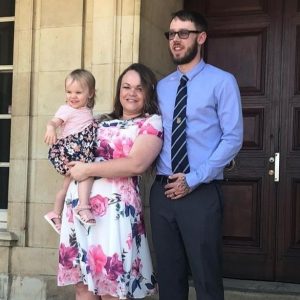 On June 30th 2018 she married Tom Fergus, Remy’s Dad, in a small ceremony at Trowbridge County Hall and became Jo Fergus. The wedding came as a bit of a surprise to friends and family who thought they were attending a birthday lunch but the sun shone and a fantastic day was had by all. Jo started to miss playing pool and in 2018 she went to the Wiltshire county pool trials and was invited back into the Wiltshire Ladies A county team. After a successful season, in which they didn’t lose a match, the team has qualified for National County Finals taking place at the beginning of March. Jo has also joined a team playing in her local pool league.
On June 30th 2018 she married Tom Fergus, Remy’s Dad, in a small ceremony at Trowbridge County Hall and became Jo Fergus. The wedding came as a bit of a surprise to friends and family who thought they were attending a birthday lunch but the sun shone and a fantastic day was had by all. Jo started to miss playing pool and in 2018 she went to the Wiltshire county pool trials and was invited back into the Wiltshire Ladies A county team. After a successful season, in which they didn’t lose a match, the team has qualified for National County Finals taking place at the beginning of March. Jo has also joined a team playing in her local pool league.